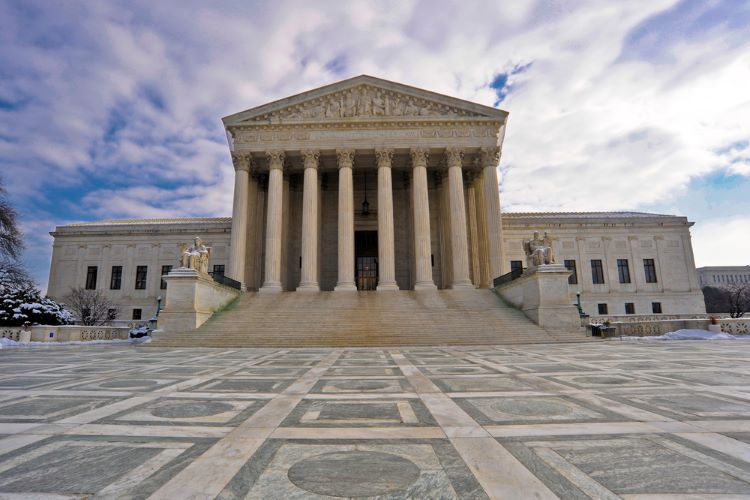States seeking greater reach for their abortion laws may turn to Supreme Court’s pig-welfare decision
Constitutional Law
States seeking greater reach for their abortion laws may turn to Supreme Court’s pig-welfare decision
May 15, 2023, 2:35 pm CDT
Image from Shutterstock.
A U.S. Supreme Court decision upholding a pig-welfare law could be seized upon by states looking to expand the reach of their abortion regulations.
Politico reports on the possible impact of the May 11 Supreme Court decision, which upheld a California law that bans the in-state sale of pork that comes from pigs raised in tiny stalls. The court had found no violation of the dormant commerce clause, which generally bans state laws intended to benefit in-state economic interests by burdening out-of-state competitors.
Pork producers had argued the law violated the dormant commerce clause because it controlled commerce outside California and it imposed excessive burdens relative to the benefit.
The decision involves states’ ability to take actions with impacts beyond their borders, which “is also central to the legal imbroglio over abortion,” Politico says. “The decision could, for instance, embolden states to crack down on the mailing of abortion pills. States with strong prevailing views on abortion could even seek to restrict the sale of goods from states with contrary views.”
Justice Brett Kavanaugh identified another possibility in a dissent to the Supreme Court decision. A state could try to prevent the retail sale of items from companies based on whether they pay for employees’ birth control or abortions, he said.
University of California at Davis law professor Mary Ziegler noted the possibilities in an op-ed for the Boston Globe.
“One thing is clear after the Supreme Court’s decision in the California pork case,” Ziegler wrote. “As interstate conflicts around abortion escalate, abortion-rights supporters may have one less legal weapon in their arsenal.”
Ziegler notes one possible impediment to states trying to ban in-state importation of abortion pills, however. The medication is regulated by the U.S. Food and Drug Administration, and federal laws could trump state laws.
“And if a conservative state like Missouri tries to make it a crime for someone in Illinois to perform an abortion for a Missouri resident, a court would most likely apply Illinois law, not Missouri rules,” Ziegler writes.






